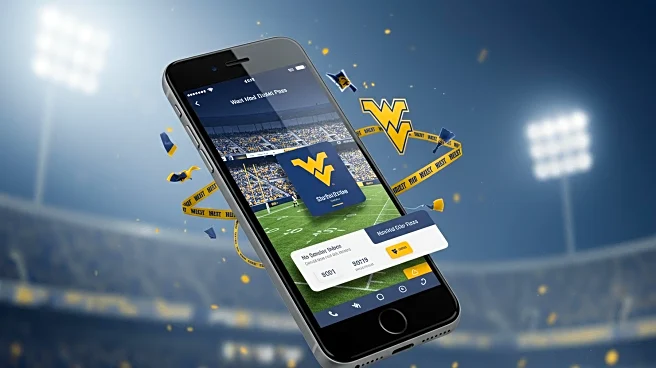What's Happening?
West Virginia University (WVU) has announced the addition of 412 new 304 Mobile Season Ticket Passes, a move that appears to be a strategic jab at rival Pitt fans ahead of the anticipated Backyard Brawl. The announcement comes as WVU prepares for the upcoming college football season, emphasizing its commitment to enhancing fan engagement and attendance. The rivalry between WVU and Pitt is one of the most storied in college football, and this latest development adds another layer to the competitive atmosphere. The 304 Mobile Passes offer fans flexible access to home games, aiming to boost attendance and support for the Mountaineers.
Why It's Important?
The expansion of mobile season ticket passes by WVU highlights the growing trend of universities leveraging technology to enhance fan experiences and increase game attendance. This move is significant in the context of college sports, where fan engagement is crucial for revenue generation and team support. By targeting Pitt fans, WVU is not only fostering its rivalry but also potentially increasing its own fan base. This strategy could influence other universities to adopt similar approaches, thereby transforming how college sports teams interact with their supporters. The rivalry aspect also underscores the cultural and economic impact of college football in the U.S.
What's Next?
As the college football season progresses, WVU's strategy may prompt responses from Pitt and other rival teams, potentially leading to similar initiatives aimed at boosting fan engagement. The effectiveness of the 304 Mobile Passes in increasing attendance will be closely monitored, and could set a precedent for other universities. Additionally, the upcoming Backyard Brawl will serve as a critical test of WVU's fan engagement efforts, with potential implications for future marketing and ticketing strategies.
Beyond the Headlines
The rivalry between WVU and Pitt is not just a sports competition; it reflects deeper cultural and regional identities. The strategic use of ticketing initiatives to engage fans highlights the intersection of sports, technology, and regional pride. This development may also influence how universities approach fan engagement, considering the balance between tradition and innovation in sports marketing.












